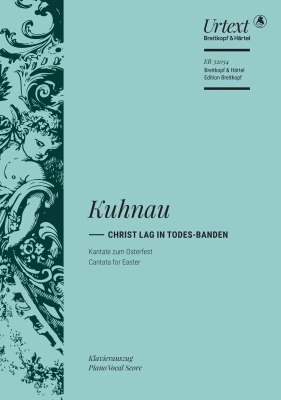Opens in a new window
Breitkopf & Hartel Christ lag in Todes-Banden (Cantata for Easter) - Kuhnau/Erler - SATB
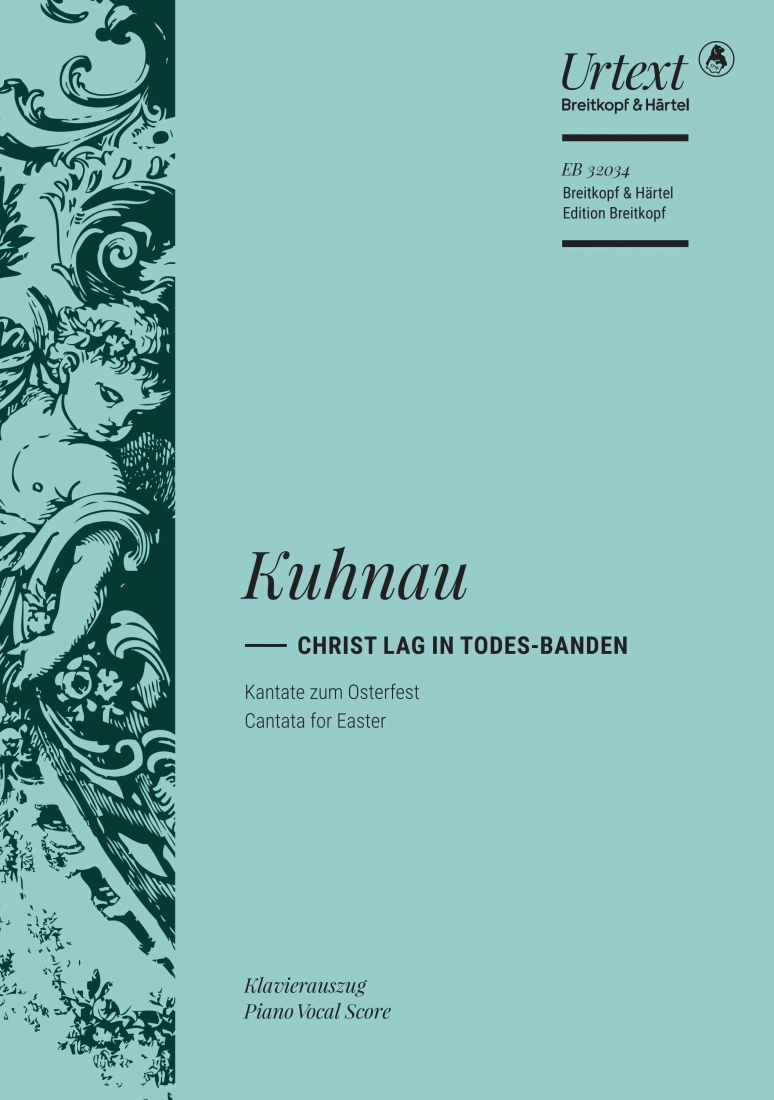
Additional Photos:
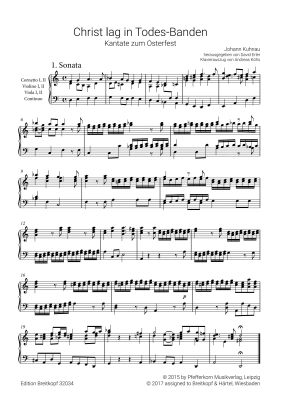
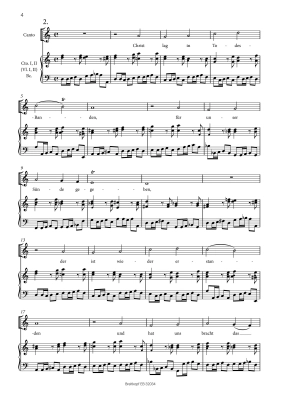
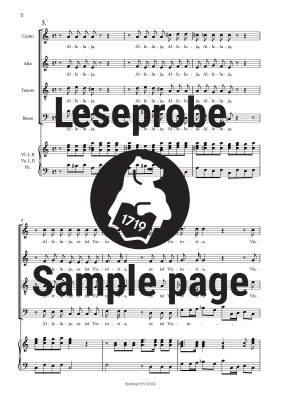
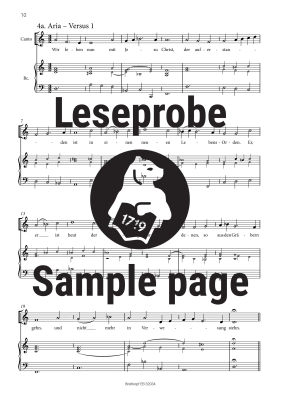
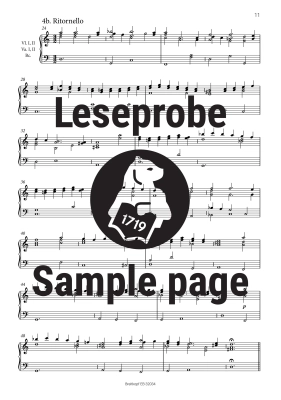
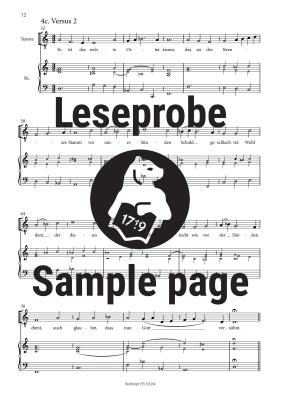
- Author/Composer:
- KUHNAU, JOHANN
- Instrumentation:
- SATB ACCOMP
- Model #:
- EB32034
Editor: David Erler
Format: Book, Urtext
Voicing: SATB with Piano Reduction
The cantata Christ lag in Todes-Banden is a mixed chorale cantata that sets the first and last verses of the corresponding Luther chorale verbatim, but the other movements in free poetry based on the content of the chorale. The time of composition cannot be clearly determined, but at the end of the copy that serves as the basis for the edition, there is a date of January 1693. According to this, the composition was written before 1693 and thus well before Johann Kuhnau took up his post as Thomaskantor in Leipzig (1701).
The use of two cornetti is also a parallel to the cantata Lobe den Herren, meine Seele (PB 32091), whose composition can be linked to Kuhnau's stay in Zittau. The two parts marked "Cornett" are only in the first two movements of the cantata; in the further course, a collaparte lead would be possible, but cannot be proven. In principle, according to the source, the two cornett parts can also be played by violins. The title page also notes the possibility of adding ripieno singers, i.e. a choir, in the non-soloistic movements.
The cantata, according to its text intended for Easter, is very well suited for use in church services with its small size and flexible scoring.
Duration: 9:00
Audio samples: Opella Musica, camerata lipsiensis, cond. Gregor Meyer (cpo, 2015)
Contents:
- 1. Sonata
- 2. Christ lag in Todes-Banden
- 3. Alleluja, es ist Victoria
- 4a. Aria - Versus 1: Wir leben nun mit Jesu Christ
- 4b. Ritornello
- 4c. Versus 2: Er ist das rechte Osterlamm
- 4d. Ritornello
- 4e. Versus 3: Den hat schon Christus vor der Welt
- 4f. Ritornello
- 5. So feiren wir das hohe Fest
Media
1 Sonata from Christ lag in Todes-Banden
Press play to listen
2 Christ lag in Todes-Banden
Press play to listen
5 So feiren wir das hohe Fest
Press play to listen
Q & A
There are currently no questions for this product.
Reviews
There are currently no reviews for this product. Be the first to write one!


